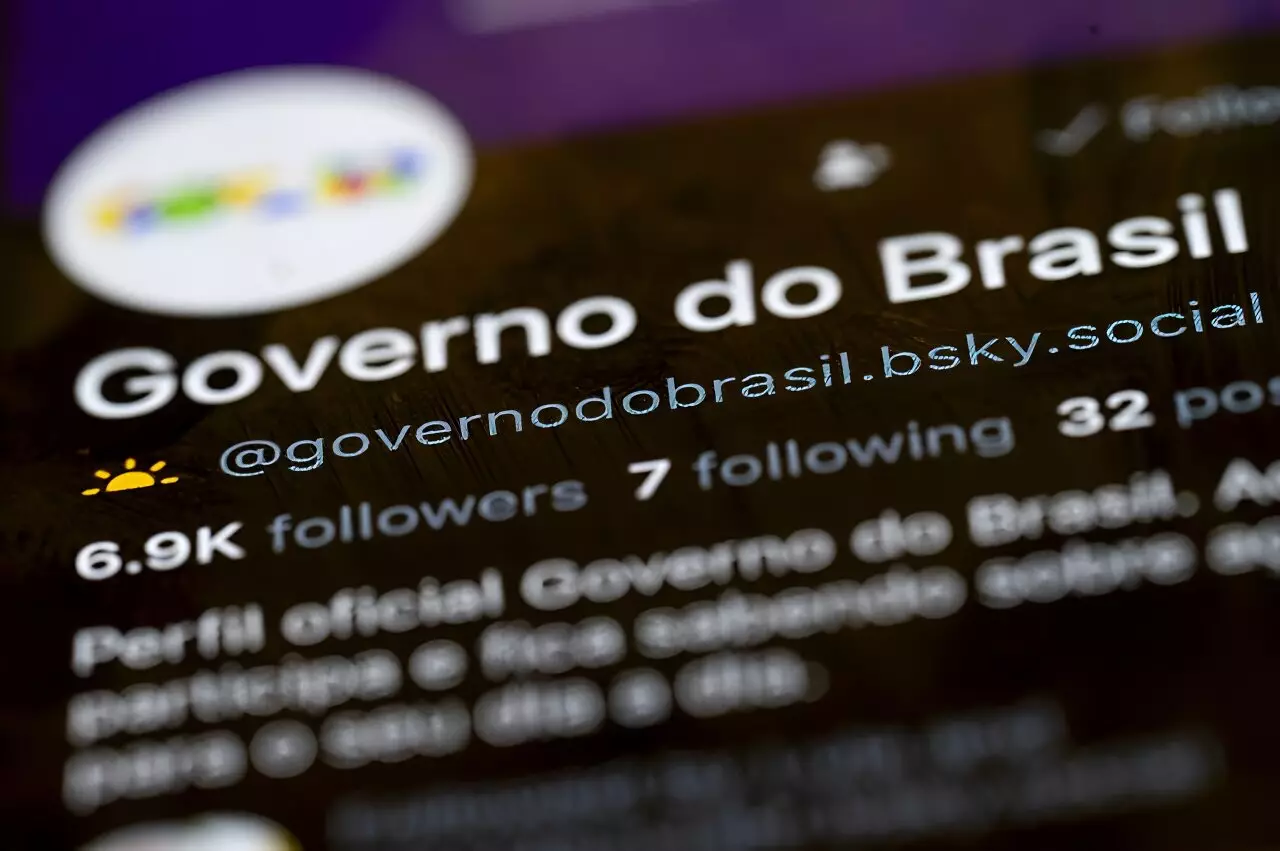Brazil’s recent ban on Twitter’s successor, X, has ignited a seismic shift in the nation’s digital ecosystem. What was once one of the world’s most engaged social media landscapes is now experiencing a flood of migration towards alternative platforms. This abrupt transition challenges the assumed dominance of well-established giants and exposes the fragility of digital ecosystems that rely heavily on monopolistic platforms. The swift movement among millions of Brazilians illustrates how regulatory clashes and ideological battles shape online behaviors and community formations in real time.
In essence, social media is no longer merely about content sharing; it has evolved into a battleground where political jurisdiction, privacy debates, and free speech intersect. The Brazilian government’s decision to block X, citing concerns over disinformation and influence on public discourse, underscores an aggressive approach to digital sovereignty. However, this move appears to have backfired by catalyzing users’ rapid departure from a platform they had long relied on, leading to an explosion of activity on more niche or alternative services like Bluesky and Threads.
This phenomenon reveals a paradox: attempts to control and regulate digital spaces often incite users to seek even freer, less regulated venues—regardless of their maturity or stability. As millions trickle into new social networks that prioritize privacy, community feel, or ideological alignment, the foundational question emerges—are these platforms sustainable, or are they just interim stopovers in the ongoing evolution of digital communities?
The Power Dynamics Beneath Platform Migration and User Loyalty
The migration from X to Bluesky and Threads is more than a mere shift in platform preference; it exposes underlying power dynamics within digital influence. Platforms like Meta’s Threads, with its seamless integration into Instagram, tap into existing user bases, making migration easier and seemingly more organic. However, this convenience comes at a cost—trust and privacy concerns loom large. The global reputation challenges faced by Meta regarding data privacy and monetization practices are well-documented, and Brazilian users’ skepticism isn’t unfounded.
Conversely, Bluesky, created by Twitter co-founder Jack Dorsey, appeals to a more niche, ideologically driven segment of the user base that values decentralization and a semblance of free expression. Yet, its smaller user base—7.6 million since the ban—raises questions about its sustainability as a true alternative on a national scale. Most users acknowledge the platform’s limitations, such as incomplete features like trending topics or multimedia capabilities which are staples on X or Instagram. For many, Bluesky represents a refuge for discourse rather than a full-fledged replacement, underscoring the concept that platform loyalty hinges not only on features but on perceived ideological alignment and community identity.
The social fabric of these digital communities is fundamentally altered by the lack of interoperability, fostering a kind of digital insularity. Users face the paradox of craving open exchanges while existing within ecosystems that are increasingly siloed and territorial. This fragmentation could deepen divides within Brazilian society, especially as political figures and influencers calibrate new online power bases amidst this chaos.
Political Power, Polarization, and the Future of Digital Debate
Brazil’s highly polarized political landscape makes the online space both a battleground and a mirror of society’s political tensions. President Lula’s active engagement on new platforms signifies the importance of digital presence in national identity and political messaging. Conversely, Bolsonaro’s adherents’ reluctance to migrate—some remaining loyal to Threads or even refusing to establish new accounts—reflects a broader ideological divide that transcends mere platform choice.
The government’s threats of fines and technological measures to curb circumvention highlight a defensive posture—one that risks further alienating citizens and fostering underground digital tactics. VPNs and proxy servers become tools of resistance, emphasizing the resilience and adaptability of users under regulatory pressure. Such acts of defiance mirror a broader global trend where users push back against censorship, asserting their right to information and expression.
This ongoing struggle shapes the future of Brazilian online politics: Will platforms continue to serve as spaces for organized political discourse, or will they fragment into echo chambers where disinformation and polarization thrive unchallenged? The answer likely hinges on how these platforms evolve and how users perceive their safety, credibility, and capacity to represent diverse voices amid government pressure.
Implications for the Global Digital Ecosystem
Brazil’s example serves as a broader cautionary tale about the vulnerabilities of social networks under political duress. When a major platform is silenced or censored, the immediate consequence is a surge in alternative platform creation and migration, often with unpredictable long-term effects. The rapid adoption of Bluesky and Threads illustrates that users prioritize belonging, information access, and community over brand loyalty or feature sets.
Moreover, the fact that many users feel more comfortable or at least more at ease in these newer environments suggests a shift in user expectations. Privacy, moderation, and ideological alignment are becoming pivotal factors in platform selection. As governments and corporations alike grapple with the balance between regulation and free expression, their strategies may inadvertently accelerate fragmentation and the emergence of niche platforms.
This shift questions the sustainability of the “big tech” model, especially in countries where political and societal tensions already threaten digital unity. The rise of smaller, more politically aligned platforms could usher in a fragmented internet era, where the globalized social media experience is replaced by regional and ideological enclaves. Such a landscape risks reducing global discourse to isolated bubbles, with fewer opportunities for cross-cultural dialogue.
### Final Reflection
Brazil’s digital upheaval reveals much about the fragile yet resilient nature of online communities. While some platforms try to consolidate control, users demonstrate an innate ability to adapt, resist, and redefine their digital environments. The future of Brazil’s social media landscape will depend heavily on whether these new platforms can grow beyond their current niches and whether they can foster genuine, trustworthy communities amidst ongoing political turbulence. This current chapter underscores a universal truth: digital spaces are fundamentally reactive—shaped by governmental actions, user needs, and the relentless push for free expression in an increasingly censored world.


Leave a Reply